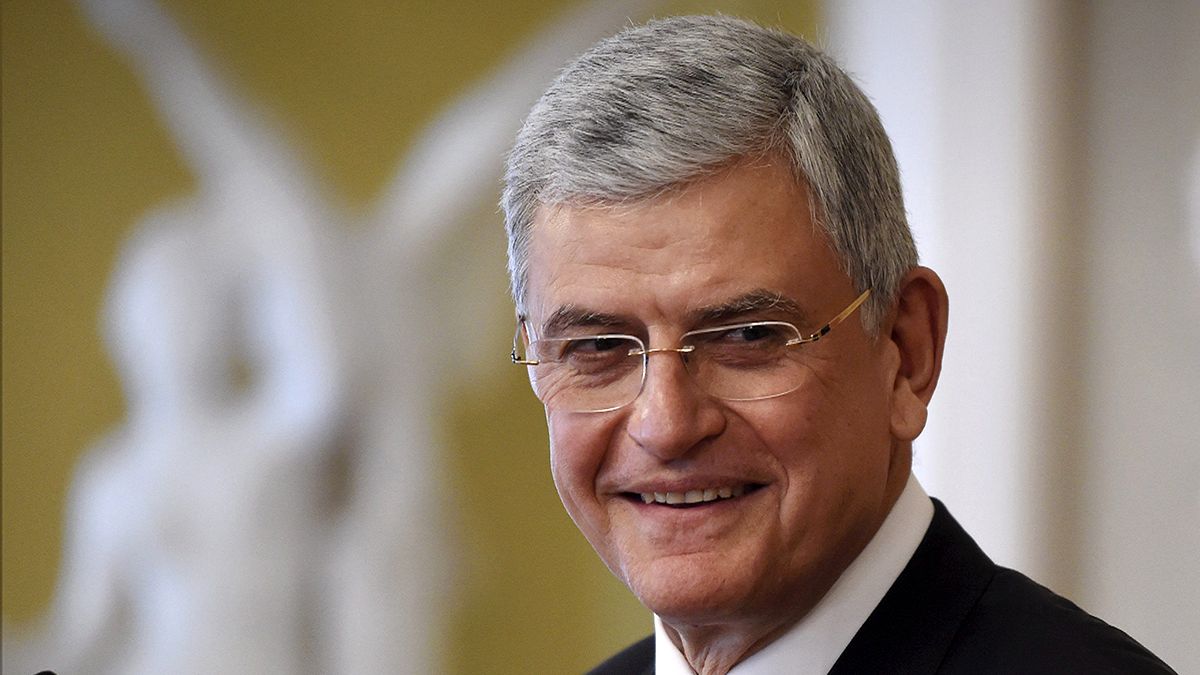Turkey's EU minister places most blame on Armenian position for failure to resolve 1915 massacre issue that has poisoned relations for 100 years
Why does Turkey reject the word “genocide” when Armenians speak of the dark days in and after 1915? What is needed to normalize relations between the two nations?
Turkey insists this issue should be dealt with by historians and not by politicians, and has repeatedly proposed the formation of an international committee of historians whose conclusions it promises to accept..
Ankara believes the issue has become an international political bargaining chip to be beaten with.
Bora Bayraktar, Euronews:
“The 24th April 2015 will be a controversial centenary between Turkey and Armenia. Turkey accepts what happened in 1915 and talks about a common grief. But when it comes to describing it as “genocide”. Turkey does not accept this definition. Why?”
Turkey’s EU Minister Volkan Bozkir:
“Really, imprisoning the thousand-year-old-relationship between Turks and Armenians, good memories of history, in just one year, 1915, and turning everything around the word “genocide” is wrong.
This is in a way our common memory. But this common memory should also be a fair memory. In the World War I years millions were killed. Maybe it should be analysed from a perspective starting in 1870 and going to the 1920s. Great pain was experienced. This is not only about our Armenian brothers. In this atmosphere Turks also suffered as well as the Kurds.
Many people suffered in this region. When we look at things from this perspective the Ottoman archives are wide open, and were not opened yesterday. This process started during the time of the late President Özal. All archives have been open for 20 years.
I served thirty-eight-and-a-half years in the foreign ministry with the Ottoman archives, our archives in Paris, London and Berlin, all the archives of the Foreign Ministry. I am a person who knows closely how carefully these documents have been analysed and the conclusions drawn. Nowhere did we see any order on intention to commit genocide. That’s why we are against this terminology.
The Turkish nation is comfortable because there is no point in Turkish history or in Ottoman history which would embarrass us.
We say historical incidents should not be used as political tools. Politicians cannot make decisions about historical events.”
Euronews:
“I think you refer to the decision of the European Parliament and the decisions of other parliaments. The Austrian parliament for example?”
Volkan Bozkır
“The European Parliament accepted a decision. They took another decision earlier. In 1987 after the European Parliament took a similar decision, the groups who supported this decision took it to the European Court of Justice, to add a legal dimension to it. The Court ruled on that in 2003. It said “political decisions cannot provide legal results.” This is a very clear decision.”
Euronews:
“At the beginning of your speech you mentioned historians. This is the main thesis of Turkey, leaving the matter to the historians. But in Armenia, it is said that if we leave this to the historians they will not act freely. Both Armenian and Turkish historians would be under the control of their states and no objective outcome will emerge. Do you agree with that?”
Volkan Bozkır:
“This is really nice rhetoric. It shows how Armenia approaches this. We are not a country that puts pressure on our historians. We opened our archives. We don’t force anybody to come and look and give us your decision about it. We say something else. We say, the Ottoman archives are open. Any academic from any part of the world, say Canadian, Swedish, German, Armenian, or American can come and research our archives.
They say there is an important archive in Boston. That archives are not open. Armenia has not opened its archives. Turkish academics cannot go and study the Armenian archives. The Armenian president does not let Armenian academics to study Ottoman archives. This is the situation we face.
Therefore we say any academic can come and we can establish a commission of historians. Let historians make the decision. As the Turkish Republic we said through our president, prime minister and other officials that we will accept the historians’ decision.
The Commission of Historians was one of the pillars of our protocols with Armenia. But the Armenian diaspora and Armenia itself knows what will come out of this commission. That is why they quit.”
Euronews:
“In 2009 the protocols were signed and a normalization process started. But at that time the Nagorno Karabakh issue changed the equation. What is needed for normalization?”
Volkan Bozkır:
“First of all Armenia has to quit its demand for territory from Turkey, which has no basis at all other than in dreams. The second step is Armenia must accept the establishment of the commission of historians, instead of using the term “genocide” for the 1915 events as they signed in the protocols.
The protocols with Armenia can only proceed in this way. But that chance has been missed. If the protocols, which had the chance to proceed when they were signed, could be revived then new arrangements will naturally be on the agenda, as happens in politics. Armenia taking a decision to withdraw from the Azeri land it occupies could lead to new conditions.”
